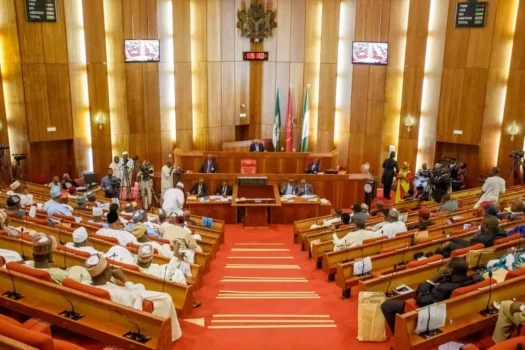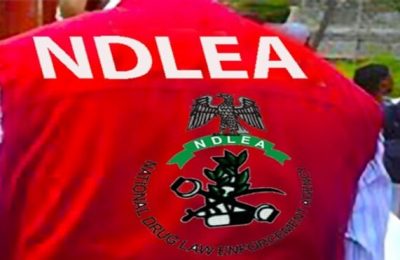
The bill to amend the Institute of Chartered Accountants of Nigeria (ICAN), Act No. 15 of 1965 did not have a smooth ride on Thursday as major stakeholders opposed some of its clauses.

A public hearing on the bill was organised in Abuja by the Senate Committee on Establishment chaired by Sen. Cyril Fasuyi.
ALSO READ: 10th NASS: Coalition lauds Speaker Abass, Bichi’s legislative achievements
Stakeholders, including the Chartered Institute of Taxation (CITN); the Association of Nigeria Taxation Students (ANTAS); the Chartered Institute of Treasury Management (CITM); the Association of National Accountants of Nigeria (ANAN); and the Nigeria Deposit insurance Corporation (NDIC) kicked against some provisions of the bill.
A key observation by some of the bodies was the concern that ICAN was seeking to take over the functions of other professional bodies in the financial sector with it’s proposals.
For instance, the CITM’s President, Barrister Samuel Agbefuyi, told the session that most of the other bodies held the same position about the bill, adding that it was only ICAN that stood on its own, promoting the legislation.
He stated, “Everybody should maintain its lane; if you are an accountant, I am one that knows what it means to be a tax practitioner. If you talk about tax practice, I am one, if you talk of a lawyer, I am one, if you talk of a stockbroker, I am one. So I know what it is to be all these.
“You can not use one legislation to override other professional bodies in the society; that is our message.”
Arguing further, Agbefuyi said, “They have the right to do their internal control and internal corporate governance, but you can not use that to annex the profession that has been certified by the National Assembly.”
On its part, ANTAS, through the National President, Mr Babtunde Opeyemi, raised concerns regarding clauses 21 and 28 of the bill.
He noted, “Section 21 of the bill introduces a new provision to the Principal Act, allowing chartered accountants to practice as tax practitioners. Section 28 expands the definition of ‘accountancy practice’ to include tax practice.”
Opeyemi said the body opposed the dual regulation granting ICAN authority over both accounting and taxation regulation, which could create confusion and distortions.
“Currently, the Chartered Institute of Taxation of Nigeria (CITN) oversees tax practitioners, ensuring competence and ethical standards. Introducing ICAN as a second regulatory body for taxation could create inefficiencies and uncertainties both for tax professionals, tax payers and students who in no distant time doubles as both the former and the latter,” he added
Giving further explanations, he stated that taxation demanded specialised knowledge beyond general accounting principles, as it required a holistic training of the practitioner on both the legal and ethical demands of the job, which CITN had mastered over the years.
He went on, “ANTAS accommodates students from diverse backgrounds including Law, Marketing, Finance, Economics among others, highlighting the interdisciplinary nature of tax practice.
“Allowing ICAN to regulate taxation may undermine the specialization necessary for effective tax practice.
On the legal implications, he said the proposed amendment may lead to legal disputes.
“Past conflicts between ICAN and CITN, such as the ICAN v CITN case (Appeal No. SC. 492/2013), demonstrate the potential for legal entanglements. Expanding ICAN’s regulatory powers into taxation could exacerbate such conflicts.
“To avoid conflict of interest and ensure professional Independence it is imperative that ICAN does not regulate both accounting and taxation.
“A single body regulating both areas could compromise the objectivity and impartiality required in these fields. Ensuring that CITN remains the sole regulatory body for taxation helps maintain clear boundaries and prevents any potential conflicts of interest, thereby upholding the integrity and independence of tax practitioners.”
He also explained that taxation is not merely an extension of accountancy, as encompasses elements of law, economics, finance, and public policy.
“CITN’s training and certification processes are specifically designed to address this complexity and breadth. Allowing a body like ICAN, which primarily focuses on accounting, to oversee taxation could dilute the specialised expertise that CITN provides, ultimately compromising the quality and effectiveness of tax practice in Nigeria”, he told the session.
He urged the National Assembly to reconsider sections 21 and 28 of the ICAN Act Amendment Bill and exclude all tax related phrases therein.
“Allowing ICAN to regulate taxation risks diluting specialisation, fostering legal disputes, and confusing practitioners and students.
“We recommend maintaining the current regulatory framework, with CITN independently overseeing tax practice. ANTAS encourages dialogue and collaboration to ensure effective and efficient regulation within the Nigerian taxation landscape,” he said.
The sponsor of the bill, Sen. Adeola Solomon Olamilekan, who said he is a proud member of ICAN, asked for total support of the amendment as the act had not been in existence since 1965 and established the institute.
He made his defence thus, “As the last speaker said, most of the other professional bodies that came after the establishment of this institute are all indirectly or indirectly members of this great institute.
“And as such, the amendment we are searching for is to make ICAN to be more formidable, to be more competitive, and also to be in line with current global practices.
“We are aware of the fact that a lot of things are ongoing, we cannot be left behind. We need to do all that we need to do to let us take our rightful place among the commity of nations and the profession in the world.
“As a sponsor of this meeting. As I’ve said, the act came into being on 1st September 1965, some 59 years ago.
“The Act empowered the institute to set standards and regulate the practice of accounting professionally in Nigeria.
“In line with the dynamics of the environment, development in the economy, and changing needs of chartered accountants over the years, it has become imperative to amend certain provisions of the Act, as well as to start new provisions to bring the Act up to the current realities.”







